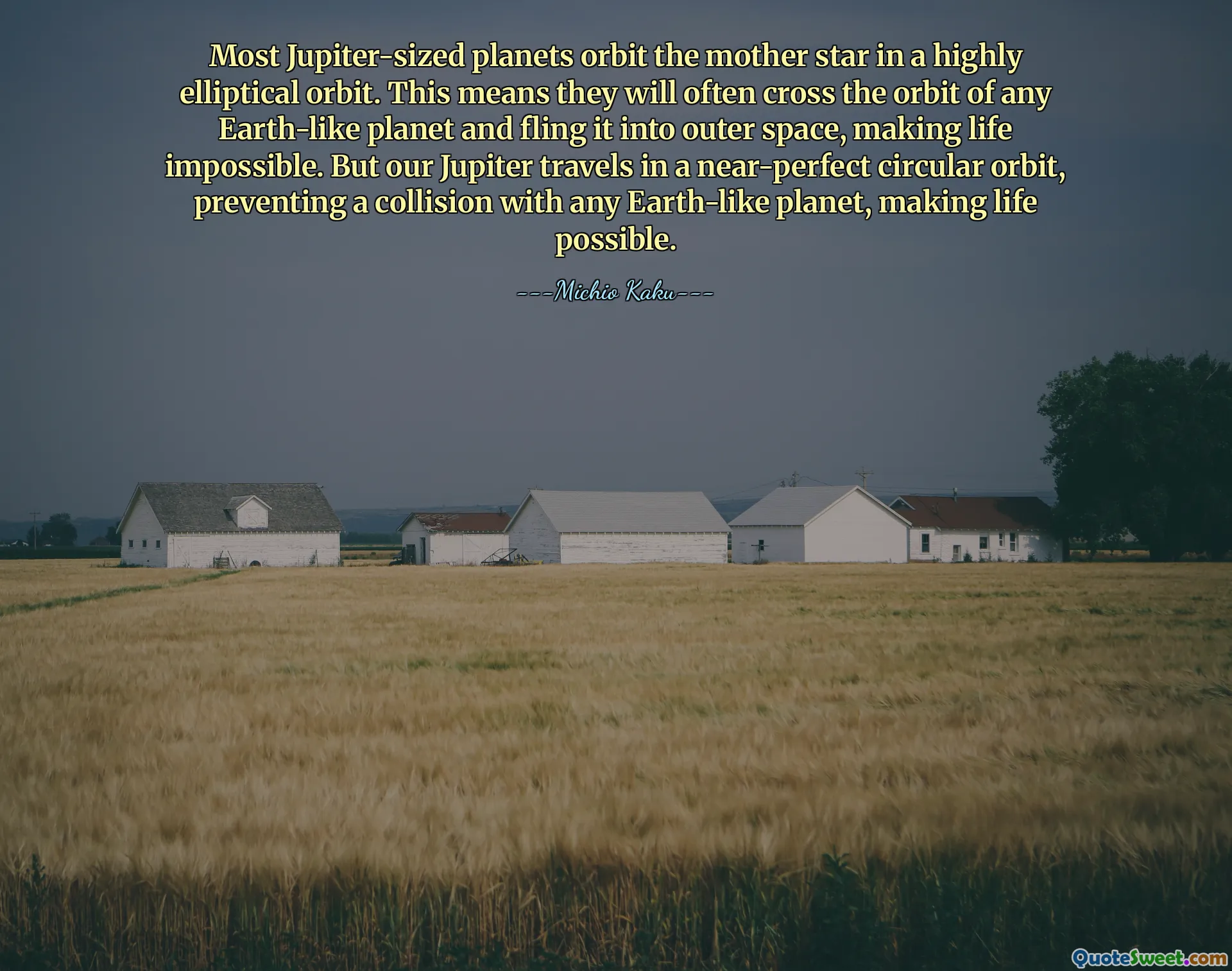
Most Jupiter-sized planets orbit the mother star in a highly elliptical orbit. This means they will often cross the orbit of any Earth-like planet and fling it into outer space, making life impossible. But our Jupiter travels in a near-perfect circular orbit, preventing a collision with any Earth-like planet, making life possible.
This quote highlights the crucial role that planetary orbital characteristics play in the potential for life existence on Earth or any similar planet. The elliptical versus circular orbit of giant planets such as Jupiter affects the dynamical stability of a planetary system. A highly elliptical orbit, like those some massive planets display, can lead to gravitational disturbances that might destabilize the orbits of smaller, Earth-like planets, increasing the risk of catastrophic collisions or ejection from the system. Such scenarios diminish the likelihood of life persisting in those systems.
Conversely, Earth's nearly perfect circular orbit creates a stable environment. The minimal variation in distance from the Sun means the planet maintains a relatively consistent climate, which is critical for the development and sustainability of life as we know it. Furthermore, Jupiter's stable, near-circular orbit acts as a shield, capturing or redirecting potentially dangerous comets and asteroids, thus protecting Earth from frequent catastrophic impacts.
This understanding enriches our appreciation for how delicate and finely tuned the conditions for habitability are within our own solar system. It illustrates that planetary stability isn't just a matter of chance but a fundamental aspect that influences the evolution of life. Developing insight into planetary orbits and system dynamics could assist us in identifying other habitable exoplanets and understanding the conditions that foster life elsewhere in the universe.
In essence, the quote underscores the importance of orbital mechanics in shaping planetary environments and the overall habitability of celestial systems. Recognizing these factors enhances our pursuit of knowledge about the universe's potential for life beyond Earth.











